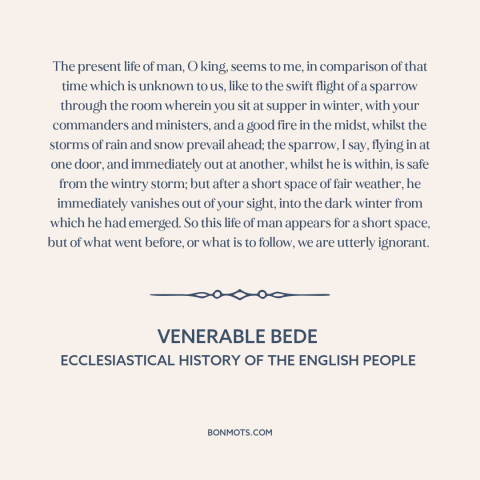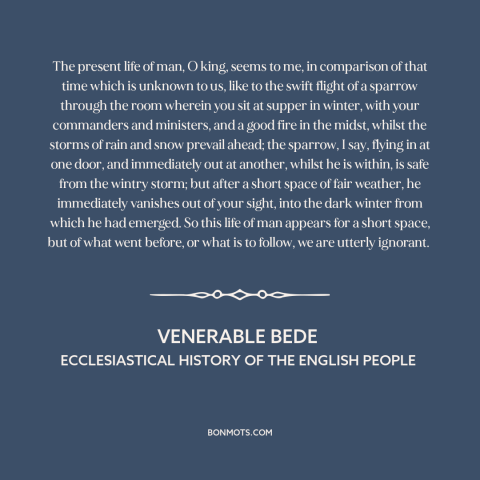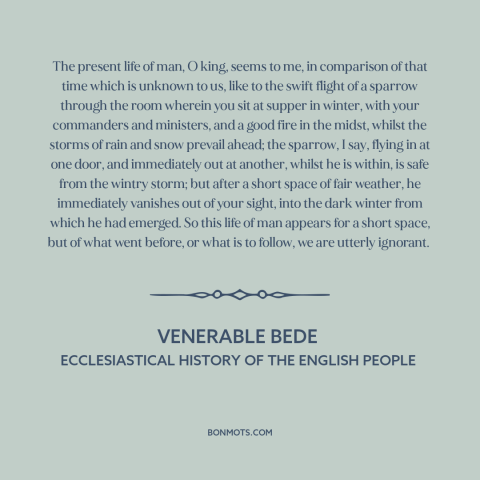The present life of man, O king, seems to me, in comparison of that time which is unknown to us, like to the swift flight of a sparrow through the room wherein you sit at supper in winter, with your commanders and ministers, and a good fire in the midst, whilst the storms of rain and snow prevail ahead; the sparrow, I say, flying in at one door, and immediately out at another, whilst he is within, is safe from the wintry storm; but after a short space of fair weather, he immediately vanishes out of your sight, into the dark winter from which he had emerged. So this life of man appears for a short space, but of what went before, or what is to follow, we are utterly ignorant.
Authentication Score 2
Original Citation
Bede. Historia ecclesiastica gentis Anglorum [Ecclesiastical History of the English People]. c. 731, bk. 2, ch. 13.
Current Citation
Bede. "Ecclesiastical History of the English People." The Ecclesiastical History of the English People; The Greater Chronicle; Bede's Letter to Egbert, edited by Judith McClure and Roger Collins. Oxford University Press, 2009, bk. 2, ch. 13.



